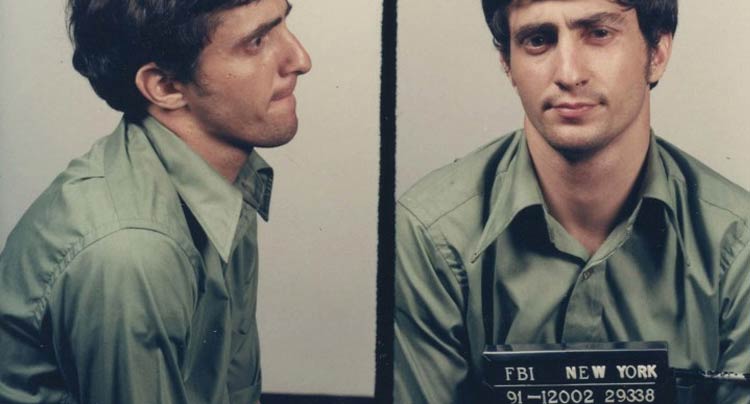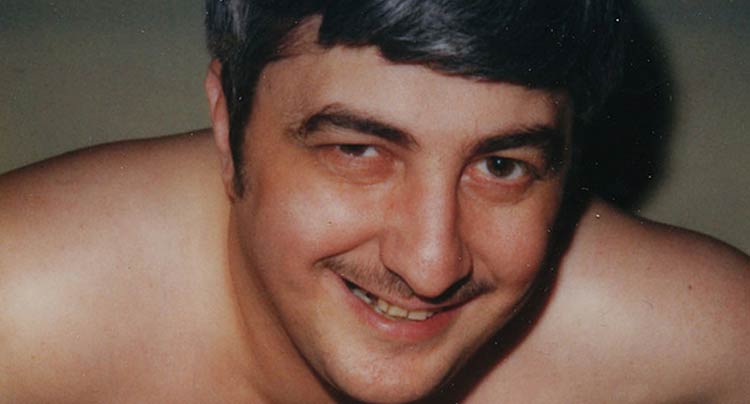
His stories are interesting and entertaining but never assemble into something cohesive or fully developed.

His stories are interesting and entertaining but never assemble into something cohesive or fully developed.
If you ask any film buff to rattle off a list of 10 great Al Pacino films, or if you avoid social interaction and just Google it, several crime dramas are guaranteed to appear (and usually in the Top 5), including Francis Ford Coppola’s The Godfather (1972) and The Godfather Part II (1974), and Sidney Lumet’s Dog Day Afternoon (1975). Coppola’s films are based on a fictional crime family, but Lumet’s film is based on the real life story of a first-time bank robber looking to score a stack of cash to finance a sex-change operation for his gay lover. The Dog is a documentary about that first-time bank-robber, John Wojtowicz.
The film opens with an introduction of the key influences in Wojtowicz’s life. The first is Liz Eden, formerly Ernie Aron, Wojtowicz’s second “wife” and recipient of the sex-change operation. Next is Wojtowicz. Third is Carmen Bifulco, Wojtowicz’s first wife. Fourth is Theresa Basso Wojtowicz, his mother. What follows is a (mostly) linear life story about a man who goes from soldier to activist to criminal to convict to reality celebrity before such a term ever existed.
The first thing that springs from the screen in co-directors Allison Berg and Frank Keraudren’s The Dog is that John Wojtowicz loves being the John Wojtowicz character. He is a masterful storyteller … as long as the story is specifically about him. Every moment he is onscreen or narrating (which is a good portion of the film), he is full of immeasurable swagger and clever statements that clearly have been rehearsed – not for the film per se, but for whatever situations John might find himself in when he needs a good zinger. For example, when speaking in reference to his multiple lovers, he says about himself, “I’m like Prudential … I’m the rock.” He’s loaded with these.

But while showcasing Wojtowicz’s recitation of his own history through his eyes is entertaining, this isn’t a film about his version of history, it’s a documentary about him, and it’s when this greater story is attempted to be told that the film struggles.
What The Dog offers are parts of a greater whole, and each of those parts has its points of interest. There is the part about Wojtowicz’s time in Vietnam. He fully supported the war and proudly served, and it was in Vietnam that he experienced his first gay sexual encounter. There is his courtship of, and marriage to, Carmen, a union her parents never wanted. There is his participation in the Gay Activist Alliance (GAA), a “political nonviolent militant organization” that was decades ahead of its time in terms of its demands for the recognition of same-sex marriages. There is his relationship with Ernie/Liz, his relationship with his mother, and of course, the robbery and the aftermath.
There are parts that never truly assemble into something cohesive, nor are they even fully developed. Wojtowicz’s first gay experience wasn’t consensual, but the impacts of this are never explored. He confesses to having enjoyed it, but his sex drive is shoddily framed as him being a self-admitted pervert. He says in his first onscreen appearance that where most other people have other “outlets” like smoking, drinking, gambling, etc., he doesn’t do any of those things so sex is all he has. The fact that he considers sex to be a vice is troubling, but it is never explored deeper than surface level.

His participation in the GAA – and really, the entire section of the film that addresses how homosexuality was spurned by society in the 1970s – is more about the history of the organization and the era than it is about the history of the man. Focusing so much on the group and the time (both historically significant a level much higher than this film should take on) by linking him to them seems an exercise in providing evidence that his homosexuality was real, not just the folly of a self-defined pervert. (He offers another zinger here, too; this one about his nickname “Little John.”)
But it’s his personal relationships that seriously lack the development they need. Despite her considerable presence in the film, Carmen’s relationship with Wojtowicz is superficially covered, and she’s used more as “the reaction shot” when it comes to the portions of the story about his homosexuality in the context of the motivation behind the robbery. Wojtowicz’s relationship with Ernest/Liz – which one can argue is the genesis of the film Dog Day Afternoon – is presented mostly as spectacle.
The most glaring lack of narrative cohesion comes from Wojtowicz’s family life. There are many soundbites of his mother (who has a mouth on her, god bless her), but she’s presented more as a witness to her son’s life as opposed to a part of it. Also missing entirely from the film are Wojtowicz’s father and one brother, as well as the two children Wojtowicz had with Carmen. These are people of consequence in Wojtowicz’s life, and they are relegated to a passing mention. It’s hard to quantify how glaring these omissions are. A second brother is clumsily introduced deep into the picture in the film’s biggest “Are you kidding me?” moment (and not in a good way).
Ultimately, opting to let Wojtowicz be Wojtowicz is what undermines The Dog. His stories are interesting and entertaining (and the detail in his recall is impressive), but it’s too lopsided a foundation to build the rest of the his history on, despite the wealth of historic footage available. This is supposed to be a documentary about a man. Instead, it’s merely a film about the events in a man’s life.